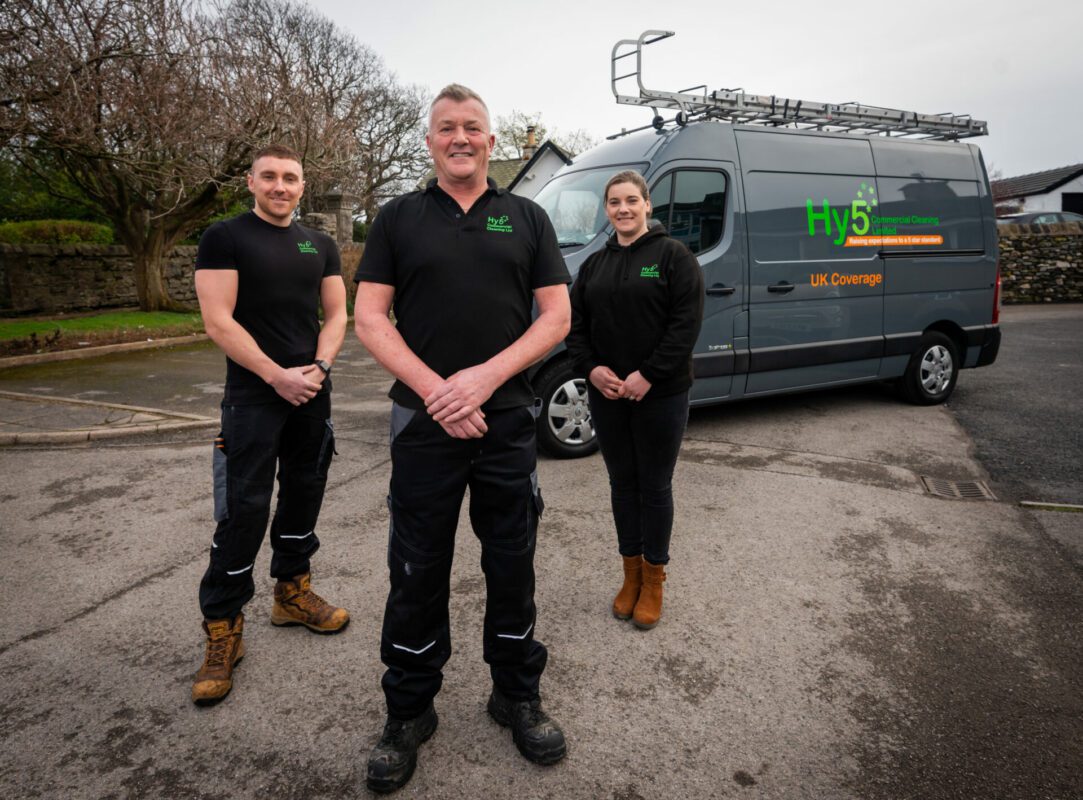Fire warning issued to schools and care homes amid kitchen ventilation concerns

HUNDREDS of schools and care homes across the UK could be at risk of devastating fires because the commercial extraction systems in their kitchens aren’t being cleaned to required industry wide standards.
All kitchens in a commercial setting now need to be cleaned by specially accredited technicians in order to adequately remove dangerous volumes of grease which quickly build up in the extraction ventilations systems.
Due to the flammable nature of the greases and oils in large-scale kitchens, there is a real risk that any fires could rapidly spread throughout school and care home buildings.
It is estimated that an entire building could be devastated within just 10 minutes.
To alleviate the fire risks, a Building Engineering Services Competence Assessment (BESCA) Vent Hygiene Elite (VHE) scheme requires all commercial kitchens to be cleaned to what is known in the industry as TR19 level. However there are fears many organisations across the UK are unaware of this specification.
Cumbria-based Hy5 Commercial Cleaning is one of only a handful of companies in the UK with the necessary BESCA accreditation, and its team is warning businesses of the potential dangers of not adequately removing grease from their kitchen extraction.
Keith Simm, the Founder and Managing Director of Hy5, said: “All commercial kitchens will routinely be cleaned but many establishments will be totally unaware of the requirement to have the commercial extraction systems cleaned to such a high standard, and why it is so important to do so.
“Over time, the amount of grease which builds up in the system is vast and they can easily catch alight due to the nature of them being around intense heat and open flames. These greases are highly flammable and once they catch fire, the flames spread extremely quickly.
“It does not bear thinking about the worst case scenarios in schools and care homes where you could have hundreds of vulnerable people trying to get out of the building at the same time.
“This is why the BESCA VHE exists and why we have significantly invested in becoming accredited because safety is of paramount importance to us. We are leading the way nationally in grease hygiene, and we want to raise awareness about the new specification to prevent any major disasters.”
The BESCA VHE has the backing of all major insurance providers across the UK, and the companies will only provide full fire cover to establishments which have been serviced by accredited technicians.
Keith added: “If commercial kitchens have not been cleaned by BESCA VHE accredited technicians, then they will not be properly covered by any insurance policies.
“If there is sadly a fire, not only are you counting the cost of any damage, but you won’t get any payout from your insurance company either.”
The VHE has been introduced by BESCA to provide a management process for controlling the risk of grease-related fires associated with commercial kitchen extraction systems.
By cleaning the kitchen ventilation system to such a high standard, businesses remove contamination from the cooking processes to significantly reduce the fire risk presented, improve system performance and ensure the surrounding area is well ventilated.
“When it comes to fire safety, the need for competence and compliance cannot be overstated,” said Duncan Sibbald who administers VHE on behalf of BESCA.
“Many parts of our industry were effectively unregulated for years and initiatives like VHE were the result of responsible firms and individuals trying to take a stand against those less than scrupulous operators who seemed unperturbed by the fact their work was putting lives at risk.
“Since the Grenfell tragedy, that work has taken on even greater significance and we are delighted that firms like Hy5 are clearly committed to improving professional standards right across our sector.”
BESCA acts as a certification body as part of the wider Building Engineering Services Association (BESA) and aims to help UK businesses and individuals to meet industry standards, ensuring compliance and promoting best practice among the industry.











Responses